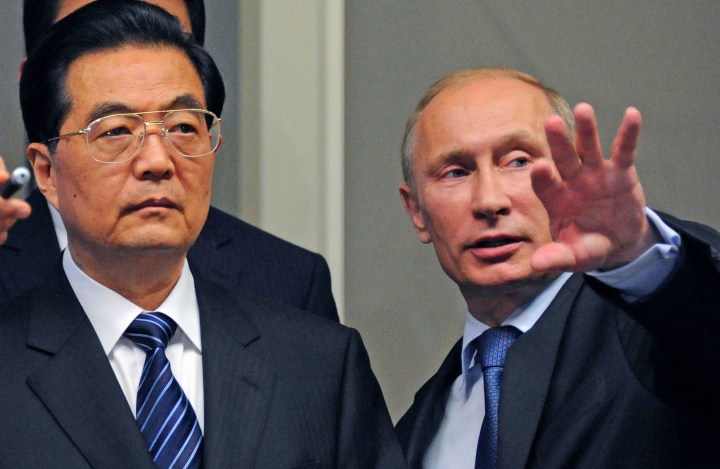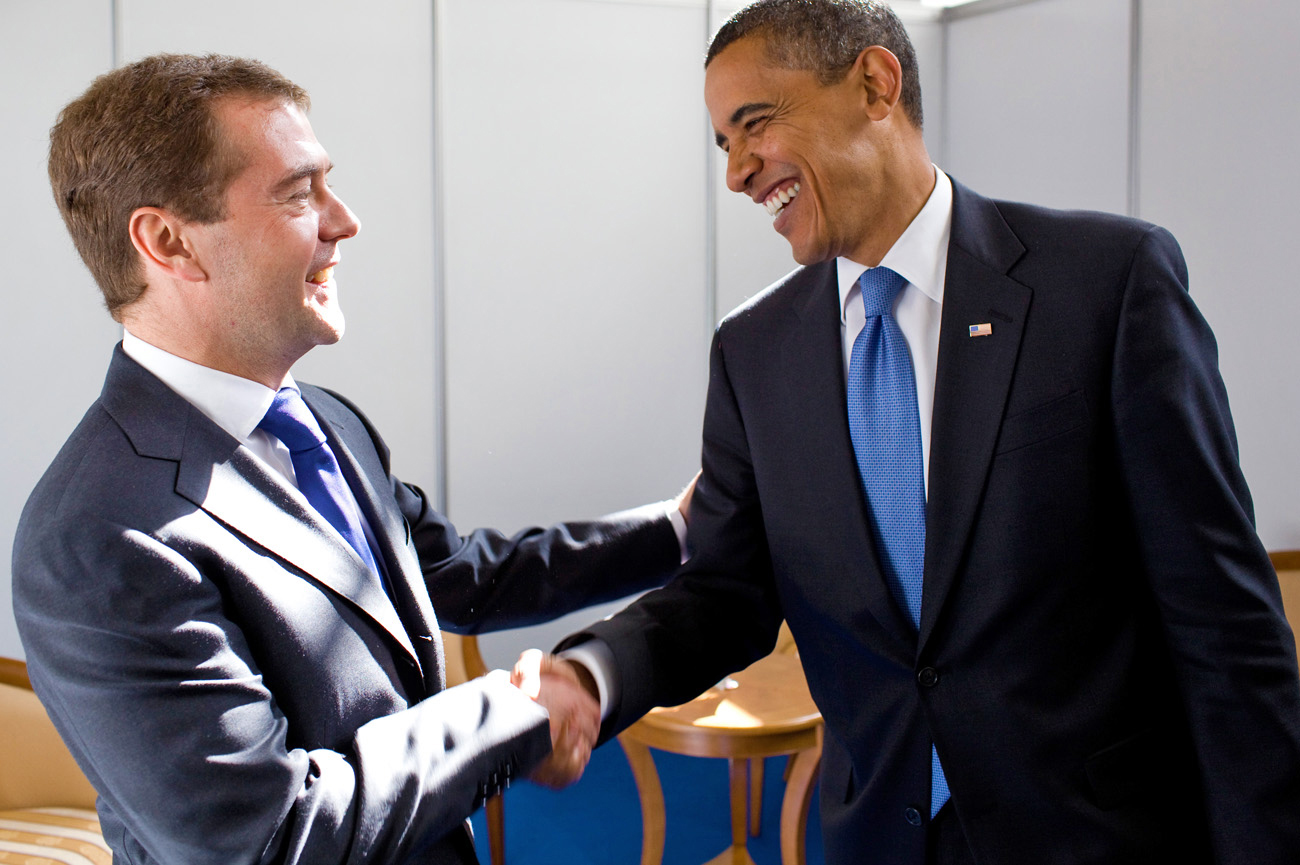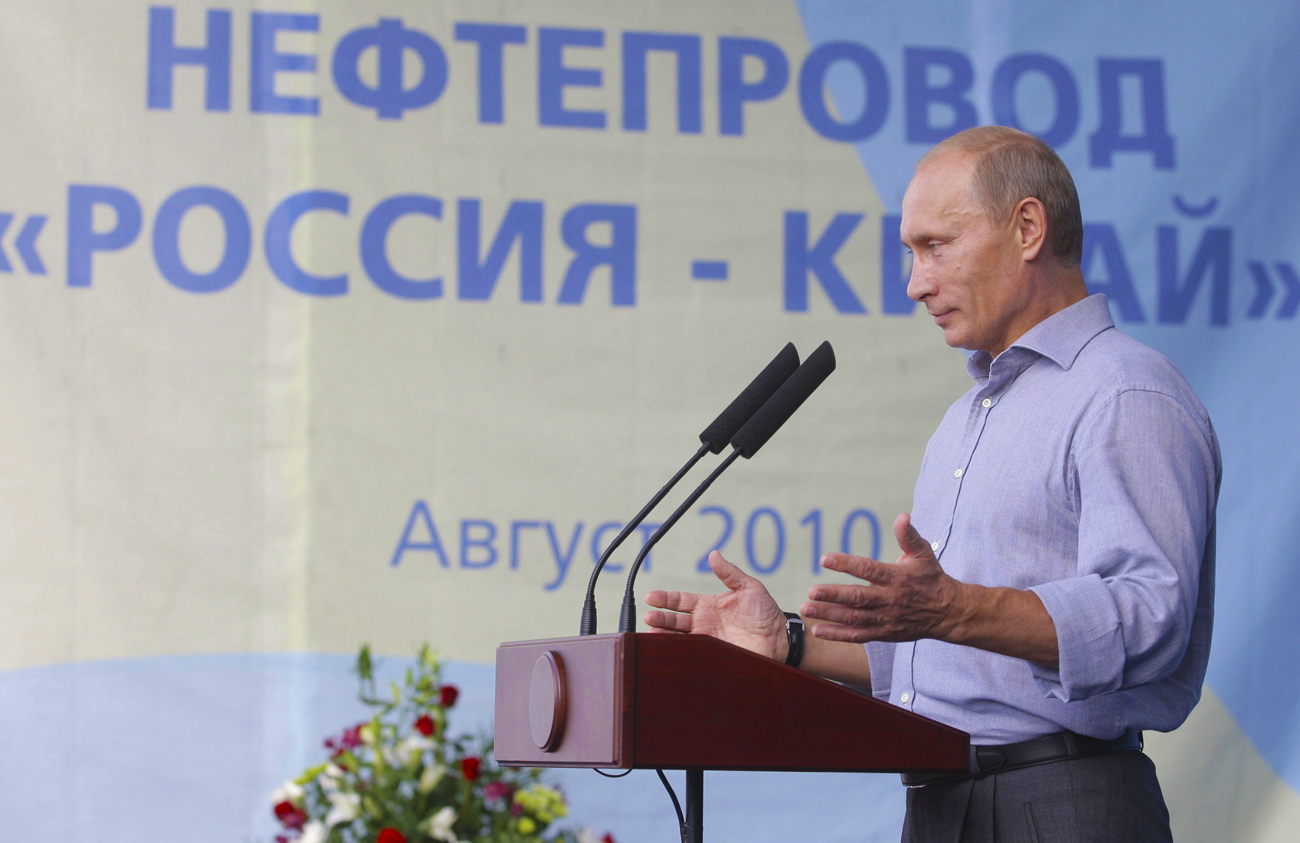Politics
Mr Putin goes to Beijing to complete the global power triangle

The test of this upcoming visit will be to measure any shifting emphasis away from the west and towards China on the part of Russia in the new Putin era. By J BROOKS SPECTOR.
Nearly 40 years ago, at the height of the Cold War – as well as that hotter one in Vietnam – Henry Kissinger and Chou En-Lai engineered a visit to China for then-president Richard Nixon. Nixon and Kissinger met Chou and Mao and, between the four of them, they put into place the foundation for an increasingly solid relationship between two, heretofore-antagonistic states. This new relationship took advantage of the then recent Sino-Soviet ideological split, remade the world’s strategic map, gave America a strategic counterbalance to the assertive Russian military, and eased China’s reintegration with the world economy after the excesses of the Cultural Revolution.
Decades later, are the tables now about to be shifted? Clearly the strategic balance is a very different one than it was in the early 1970s. China’s vigorous economy continues to grow at rates well beyond virtually all of the OECD economies and in GDP terms (although not in per capita income) is now the world’s second biggest economy. China now is also the largest holder of American sovereign debt and its economy is so integrated with America’s in trade terms that some are already calling the resulting economic landscape “Chimerica”. Meanwhile, the fundamental goad for Kissinger’s initiative – a militarily powerful Soviet Union – has vanished. Its successor state, the historic Russian core, has been focused for two decades on sometimes painful, sometimes violent, restructuring and domestic rearrangements.

Now Russian Prime Minister Vladimir Putin is poised to re-assume the country’s presidency next year from his putative ally, Dmitri Medvedev, and stay in this position for a decade or more. Is it reasonable to predict there may be efforts to alter – or complicate – the earlier balance that evolved from the initial Kissinger/Chou understanding of the 1970s? Certainly in the past several years, an increasingly assertive, economically vigorous China has pressed its neighbours diplomatically as well as carried out military activities along its Pacific littoral and beyond – both on the sea and in the air. Moreover, it may soon deploy its first full-fledged aircraft carrier.
And so strategic analysts will almost certainly be looking very closely at what comes from Vladimir Putin’s China visit as Russian president-to-be that begins on Tuesday – who he meets, what they say to each other and what is in the communiqué at the end of the trip.
China’s official news agency has already quoted Putin as saying the two countries “have enjoyed an unparalleled partnership” and that he believed the upcoming meetings with the Chinese leaders will see “a positive development” in bilateral relations – sort of diplomatic shorthand for “we’re keeping our fingers crossed to see how things come out”.
Earlier this year, when Chinese President Hu Jintao visited Russia, the two nations issued the kind of standard diplomatic fluff about friendship and neighbourliness when there is nothing of major consequence to announce. But, of course, most recently, the two nations jointly vetoed UN Security Council action on Syria. Or as Chinese foreign ministry spokesman Hong Lei put it, “The two sides have supported each other in the international arena, as the two have carried out close coordination and jointly coped with new changes in the international situation to safeguard their common interests and promote the democratisation of international relations.” Uh hunh.
In its scene-setter for the upcoming visit, the Xinhua News Agency also pointed to growing trade between the countries, reaching some $35.9 billion in the first half of 2011, a nearly 40% increase over 2010. It added that the two countries have pledged to work towards a target for bilateral trade to reach $100 billion by 2015, and then to double it five years later.
And so that takes us to Vladimir Putin’s China visit – first foreign trip since he had effectively reclaimed Russia’s presidency. In Putin’s meetings and talks with the Chinese leadership cadre, beyond the more general waffle about strategic relationships and shared stances on world affairs – there is likely to be some hard negotiations over a natural gas export pact that could be worth as much as $1 trillion. This points to the tougher tasks for Putin in dealing with Russia’s relationship with its much more populous, and much faster growing neighbour – and one where Putin does not hold all the high cards. Jeffrey Mankoff, in exploring the sources of Russian-Chinese tensions for the Council on Foreign Relations, observed that historically:
“…Many in the West have worried about the growth of Russo-Chinese influence over the newly independent states of Central Asia. Through the mutual-security group called the Shanghai Cooperation Organization and in scores of joint military exercises, counter-terrorism maneuvers and energy projects, the two great powers collaborated closely in order to keep these buffer states peaceful, compliant and relatively free of American penetration. Lately, however, a perceptible shift has overtaken the region. In 2010, the biggest threat to China and Russia’s Central Asian interests may now be each other.”
Of course, China will undergo its own leadership transition next year, and the Chinese will almost certainly be trying to take the measure of Putin’s plans where natural resources, trade deals and nuclear weaponry will be major factors in Beijing’s own economic and geopolitical strategies for future. Zhao Huasheng, director at the Center for Russia and Central Asia Studies at Shanghai’s Fudan University says, “The significance of this trip exceeds that of a normal prime minister-level visit.” Putin is not travelling alone. His party will include leaders from state-controlled energy firms like Gazprom and Rosneft, as well as the country’s major aluminum producer UC RUSAL. These firms are anxious to sell their commodities for hard currency from China – which has a whole lot of the stuff.
Meanwhile, that recent double veto of the European-drafted, US-backed UN Security Council resolution to condemn Syria’s crackdown on pro-democracy protesters should be read as a warning to the West about taking too free a hand in such matters. Putin may well make use of these meetings to highlight further China’s role as Russia’s increasingly close geopolitical partner – beyond its role as a customer for its petroleum and natural gas. In fact, Putin already made that point in a televised meeting with the Gazprom CEO in which Putin ordered him to draft proposals for Gazprom’s further expansion into Asian markets – rather than always rely on a stagnant European economy.
Russia’s current president, Dmitry Medvedev, had not exactly been aloof from China, but his focus had been more towards nurturing a warmer relationship with the US – as with the famous “reset” button of US-Russian relations. The test of this upcoming visit will be to measure any shifting emphasis away from the west and towards China on the part of Russia in the new Putin era.

Interestingly, a new report from the Stockholm International Peace Research Institute says China is gaining the upper hand in their relationship as it becomes increasingly less and less reliant on Russia for military hardware and as it continues to look for alternative sources for energy resources. But of course observers in Africa would know all about this. And the Stockholm Institute’s report adds “There are strategic planners in Beijing and Moscow who view the other side as the ultimate strategic threat in the long term.” Of course some scholars argue Putin is already well aware of this challenge and that “the risks from China’s growth will be watched more closely than the opportunities,” as Fyodor Lukyanov, editor of the journal Russia in Global Affairs, says.
Of course, this being the year leading quickly into a US presidential election campaign, the relationship with China – as well as that with Russia – is seeping into the campaign rhetoric. China’s role as tormentor-in-chief of the American economy has become well entrenched for both parties, but Republicans are now beginning to focus on Russia as well. A recent interview with Mitt Romney – the man increasingly likely to be the Republican challenger for the White House – in the Washington Post reporter explains that Romney says he is:
“…under no illusions about Vladimir Putin. He is convinced that Putin dreams of rebuilding the Russian empire. He says, ‘That includes annexing populations as they did in Georgia and using gas and oil resources to throw their weight around in Europe. He maintains that the START treaty was tilted toward Russia. It has to end… We have to show strength’.”
If the Republicans do capture the presidency, and perhaps even if they do not, there may well be an increasingly fluid situation where Russia, China and the US have to sort out a new triangular strategic relationship where the economic issues as well as military ones are key. As Amy Knight wrote recently in the New York Review of Books on the impending changeover in the Kremlin:
“Western leaders, for the most part, pinned their hopes on Medvedev as president in 2012, because he has demonstrated a greater willingness than Putin to cooperate on a wide range of issues. Now they will apparently have no choice but to do business with Putin…”
Interestingly, The Economist has counseled greater efforts by the West to work with even a more strong-minded Russia under Putin. As the Economist put the case that “…The West needs to engage with any Russian government on issues ranging from arms control to nuclear-weapons treaties, and from Iran to Afghanistan. It is thus worth persisting with the Obama administration’s ‘reset’ policy, albeit without illusions. Equally, efforts to get Russia to join the World Trade Organisation should be stepped up, as its rules would usefully trammel the atavistic impulse within the regime to slide towards protectionism.”
Given these cross-currents, the resulting Vladimir Putin – Hu Jintao communiqué issued at the end of Putin’s trip will deserve a very close read of what it promises as well as a very careful parsing of its intentions. DM
Read more:
- Mitt Romney interview in the Washington Post;
- Putin’s visit eyes further bilateral cooperation in the China Daily from Xinhua News Agency;
- Putin’s China visit watched for strategic signals on the Reuters News Service;
- Putin’s Risky Course in the New York Review of Books;
- Putin says Russia will spend over $13 billion on modernizing weapons factories in the Washington Post;
- The once and future president in the Economist;
- U.N. Resolution on Syria Blocked by Russia and China in the New York Times;
- China-Russia Competition Opens a Door for America on the Council of Foreign Relations website.
Photographs: REUTERS






 Become an Insider
Become an Insider